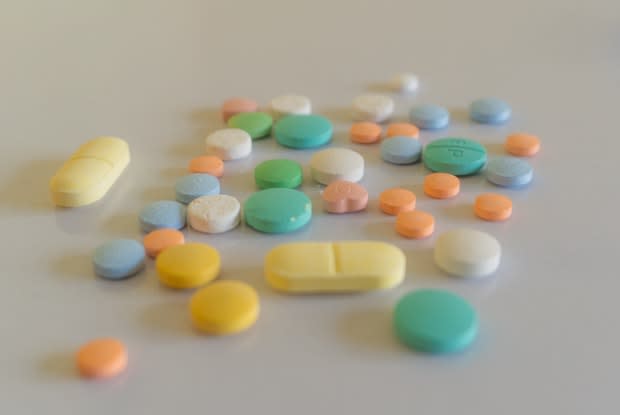Table of Contents
I. So, what kind of medication is Cialis?
a. Is there a difference between Cialis and tadalafil?
III. Can Cialis cure erectile dysfunction or other conditions permanently?
IV. Does it cause frequent urination?
VI. Are there any precautions you should take?
b. Don’t forget to ask your doctor about your diet.
c. Keep an eye out for any side effects.
VII. What can you do if you want to learn more about Cialis?
Has your doctor suggested you take Cialis? It’s understandable if you’re on the fence about going with their suggestion. Taking new medication can be scary. There are potential side effects you might experience. You may even need to avoid certain substances while on your new medication.
It’s a lot of information to consider. But remember that your doctor has your best interests in mind.
And of course, you don’t have to handle all this information alone. Here at Rx Connected, we would like to help. So let’s all explore Cialis and how it works.
So, what kind of medication is Cialis?
Cialis or generic tadalafil is part of a class of drugs that are called Phosphodiesterase type 5 (PDE-5) inhibitors. [1] Typically, they help stop a particular enzyme from working.
This enzyme (called PDE-5) is found in blood vessel walls around the lungs and penile area. [2] PDE-5 breaks down cyclic guanosine monophosphate (GMP). And cyclic GMP happens to be responsible for relaxing and widening blood vessels.
So when it’s broken down, the blood vessels are less relaxed and open.
That’s where PDE-5 inhibitors like Cialis come in. They stop PDE-5 from working and allow more cyclic GMP to enter a body’s blood vessels. In return, areas like the lungs or penis get an increase in blood flow as the blood vessels relax more.
Get savings updates for Cialis
Is there a difference between Cialis and tadalafil?
Actually, Cialis and tadalafil are one and the same! Cialis just happens to be the brand name while tadalafil is the generic name for the same medication.

Is Cialis addictive?
Thankfully, at least one American addiction organization has declared Cialis a non-addictive substance. [3] The Addiction Blog notes two major reasons why. First, it isn’t habit-forming. And secondly, Cialis does not create a physical dependence. There is typically no feeling of withdrawal if you choose to stop taking the medication regularly.
Keep in mind, though, that even if you aren’t likely to form an addiction, you still could. In fact, anything can be addictive. [4] Even exercising!
If the activity or substance is pleasing enough, you can end up wanting to experience it more and more. In some cases, it can lead you to excessively doing the activity or substance.
Of course, that’s not to say that you will start popping a ton of Cialis pills every day. Rather, we urge you to be careful and follow your doctor’s medication instructions exactly. Avoid excessive use of Cialis, and you should be safe.
What does it treat?
So, we know what Cialis is now, and we know what it can and can’t do. But what does it treat? Surprisingly, it can treat quite a few conditions. These include the following.
Erectile Dysfunction
This condition happens when you’re unable to achieve a firm erection. There are a number of causes for this, such as:
- Heart disease
- Clogged blood vessels
- High cholesterol
- High blood pressure
- Diabetes
- Obesity
- Metabolic syndrome
- Parkinson’s disease
- Multiple sclerosis
- Tobacco use
- Peyronie’s disease
- Alcoholism
- Sleep disorders
- Stress
- Mental disorders, including depression and anxiety
So long as the cause of erectile dysfunction (ED) is any of the listed physical disorders, Cialis should help treat it. After all, it widens the penile blood vessels that might otherwise be restricted by these disorders.

Enlarged Prostate
Cialis can also treat an enlarged prostate, also known as benign prostatic hyperplasia (BPH). [4]
Typically, men of 50 years of age and older develop this condition naturally. Other risk factors for getting BPH include:
- Getting abdominal obesity
- Not being active enough
Once they do get BPH, they may experience a number of urination problems, such as:
- Having difficulty passing urine
- Feeling the need to urinate more frequently at night
- Experiencing a strong urge to urinate suddenly
- Being unable to empty the bladder entirely
To relieve the severity of these symptoms, Cialis relaxes the muscles around the prostate, bladder, and urethra.
Pulmonary Hypertension
Lastly, Cialis is sometimes prescribed to treat pulmonary hypertension (PH). This condition is what happens when there is high blood pressure in the lungs. Depending on the cause of it, people can develop one of five types of PH:
1. Pulmonary arterial hypertension. The causes include:
- A gene mutation
- Prescription diet drugs
- Illegal drugs, such as methamphetamines
- Particular toxins
- Heart abnormalities at birth
- Connective tissue disorders
- HIV
- Chronic liver disease
2. Pulmonary hypertension caused by left-sided heart disease. The causes include:
- Mitral valve disease
- Aortic valve disease
- Lower left heart chamber failure
3. Pulmonary hypertension caused by lung disease. The causes include:
- Chronic obstructive pulmonary diseases like emphysema
- Lung diseases like pulmonary fibrosis
- Sleep disorders like sleep apnea
- Long-term exposure to high altitudes
4. Pulmonary hypertension caused by chronic blood clots. As the name suggests, this PH is caused by blood clots. More specifically, it is caused by chronic blood clots in the lungs.
5. Pulmonary hypertension associated with other conditions for unclear reasons. The causes include:
- Blood disorders
- Organ disorders like sarcoidosis
- Metabolic disorders like glycogen storage disease
- Pulmonary arteries dealing with tumors
In some cases, Cialis can treat these conditions to increase the blood flow in and around the lungs.
Can Cialis cure erectile dysfunction or other conditions permanently?
To determine whether Cialis can cure these conditions permanently, you should ask your doctor first.
But in general, most of these conditions are not curable. Rather, you can manage them so their symptoms affect you less in life. For instance, both BPH and PH are considered to be incurable at this time with medications only, but sometimes a surgical approach is warranted.
Luckily, ED can be reversed or cured in certain cases. But it depends. So be sure to make an appointment with your doctor to find out!
Does it cause frequent urination?
You should also ask your doctor about this concern. Most medications come with a wide variety of potential side effects. And Cialis is likely no different.
But at the very least, authorities on the matter seem to indicate that Cialis does not cause frequent urination.

How should it be taken?
Even without the worry of frequent urination, you should still be careful about how you take Cialis. Taking too little or too much of it could hurt your chances of improving your condition. So keep in mind the two typical ways you should take Cialis.
On an As-Needed Basis
If you’re hoping to take Cialis for ED, you may be prescribed to take it as needed. That way, you can take a large dose of Cialis about an hour or so before intercourse. And you’ll be good to go!
Daily
In other cases, it’s more likely that you’ll be prescribed a daily dose of Cialis. It’s often a smaller dose than the as-needed kind. But because it’s taken daily, it will circulate through your body constantly.
For more information on this topic, consider going through our other Cialis articles. Pay particular attention to our article on how much Cialis you should take. And don’t forget to look up our discussion on how to take Cialis for the best results!
Are there any precautions you should take?
Aside from informing yourself, be sure to practice the following. It should help keep you happy and healthy while on Cialis.
Be patient.
To start, keep in mind that Cialis doesn’t always work the first time you take it. So give it a few good tries before talking with your doctor.
Don’t forget to ask your doctor about your diet.
You’ll also want to keep your eating routine in mind. Certain foods and substances can affect Cialis.
Keep an eye out for any side effects.
If you experience the following, these are likely Cialis side effects:
- Belching
- Heartburn
- Indigestion
- Stomach pain
While likely not harmful in the long run, it is always a good idea to check with your doctor.
What can you do if you want to learn more about Cialis?
To learn more, read the rest of our Cialis articles. But keep in mind that your doctor may have additional knowledge that can change how you approach Cialis.
DISCLAIMER: The content in this article is intended for informational purposes only. This website does not provide medical advice. In all circumstances, you should always seek the advice of your physician and/or other qualified health professionals(s) for drug, medical condition, or treatment advice. The content provided on this website is not a substitute for professional medical advice, diagnosis or treatment.

